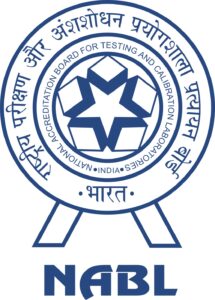





Pathology Services
Haematology
Haematology is the branch of medicine concerned with the study of the cause, prognosis, treatment, and prevention of diseases related to blood. It involves treating diseases that affect the production of blood and its components, such as blood cells, hemoglobin, blood proteins, bone marrow, platelets, blood vessels, spleen, and the mechanism of coagulation. Such diseases might include hemophilia, blood clots (thrombus), other bleeding disorders, and blood cancers such as leukemia, multiple myeloma, and lymphoma.
- Complete Haemogram
- Complete Blood Count (CBC)
- Hb, TC, DC, ESR, Platelet
- PCV, BT, CT, LE Cell
- M.P. (Slide)
- Malaria Antigen Test
- Dengue (ELISA)
- Dengue NS1 (ELISA)
- Dengue IgG (ELISA)
- Dengue IgM (ELISA)
- Reticulocyte Count
- Hb Electrophoresis (HPLC)
- Micro Filaria Exam.
- ETC.......
Biochemistry
Clinical Biochemistry (also known as chemical pathology, clinical chemistry or medical biochemistry) is the area of chemistry that is generally concerned with analysis of bodily fluids for diagnostic and therapeutic purposes. It is an applied form of biochemistry (not to be confused with medicinal chemistry, which involves basic research for drug development).
- Plasma Gluose (Blood Sugar) Fasting / PP/ Random
- Insulin Fasting / PP , HbA1c (HPLC)
- Urea, Creatinine, Uric Acid
- BUN, E-GFR
- Cholesterol (HDL, LDL, VLDL)
- Triglyceride, Total Protein, Albumin, Globulin
- Serum Bilirubin (Total / Direct)
- NPN, SGOT (AST), SGPT (ALT)
- Hepatitis C Virus (Anti HCV) - Immunochromatography Qualitative
- Hepatitis C Virus (Anti HCV) - ELISA - Qualitative
- GGT / Gamma GT, Alkaline Phosphate
- Serum Amylase, Serum Lipase, Serum Acid Phosphate
- CK-NAC/CPK, CK-MB, LDH/LDH1, Trop-T
- Sodium, Potassium, Chloride, Bicarbonate
- ETC........
Immunoassay
An immunoassay is a biochemical test that measures the presence or concentration of a macromolecule or a small molecule in a solution through the use of an antibody (usually) or an antigen (sometimes). Some immunoassays can be carried out simply by mixing the reagents and sample and making a physical measurement.
- T3, T4, TSH
- Free T3, Free T4
- FSH / LH / Prolactin
- IgG TB / IgM TB
- Anti-Cardiolipin Antibody IgG/IgM
- Lupus Anticoagulant
- TORCH Profile
- Inorganic Phosphate / Calcium
- Serum Cortisol, Serum Beta HCG, IgE
- Toxoplasma IgG/IgM
- Rubella IgG/IgM
- ETC........
Serology
Serology is the scientific study of serum and other body fluids. In practice, the term usually refers to the diagnostic identification of antibodies in the serum. Such antibodies are typically formed in response to an infection, against other foreign proteins, or to one’s own proteins.
- Pregnancy Test / Pregcolor, Pregnancy Test (ELISA)
- HbsAg (Australia Antigen)-Qualitative, HbsAg (ELISA)-Qualitative
- Rheumatoid Factor (Turbidometry)
- Widal / Widal (Slide) Test
- Typhoid (IgG, IgM) ELISA, VDRL / Kahn Test
- ASO Titre, Aldehyde Test, ANF, CRP (C-Reactive Protien)
- Anti CCP, Vitamin D3, Ferritin, CEA, CA-125, DHEAS
- PSA, Free PSA, IL6, D-Dimer
- HIV (Immunochromatography), HIV (ELISA)-Quantitative
- Anti HEV IgG/IgM, Anti HAV IgG/IgM
- APTT/PTT, Prothrombin Time (PT)
- Blood Group, G-PD Screening Test
- ETC........
Microbiology
Microbiology is the scientific study of microorganisms, those being unicellular, multicellular, or acellular. Microbiology encompasses numerous sub-disciplines including virology, bacteriology, protistology, mycology, immunology and parasitology.
- Culture & Sensivity
- Smear for Gram Strain
- Smear for AFB, Slit Skin Smear for AFB
- Nail Clipping for Fungus (Slide)
- ETC........
Comprehensive Profiles
Comprehensive Profiles are the set of various diagnosis study within the same tesing group with multiple parameters. It is the most pocket friedly way to get tested with a variuos parameters in a sort.
- Liver Function Test (LFT)
- Renal Profile
- Cardiac Profile
- Lipid Profile
- Hypertension Profile
- Diabetic Profile
- ETC........
Stool Examination
A stool test involves the collection and analysis of fecal matter to diagnose the presence or absence of a medical condition. The patient and/or health care worker in the office or at the bedside is able to make some important observations.
- Color
- Texture/consistency—formed
- Classify type of feces (diagnostic triad for irritable bowel syndrome) based on Bristol stool scale
- Stool RE
- Occult Blood
- Reducing Substance
- ETC........
Urine Examination
Clinical urine tests are examinations of the physical and chemical properties of urine and its microscopic appearance to aid in medical diagnosis.
- Urine Sugar (Fasting / PP)
- Routine Examination
- Bence Jone's Protien
- Urine Protein 24 Hours
- Creatinine Clearance m24 Hours
- Urinary Microalbumin
- Urine for Creatinine
- ETC........
Why Choose NMB ?
- Awarded accredication by NABL, BARC etc.
- An ISO 9001 - 2015 certified LAB
- 19 Years of experience in Diagnostic Services
- Most Recomended Diagnostic Centre by Doctors
- High quality FULLY AUTOMATIC instruments
- Top Level experts in each department
What You Get ?
- Imaging | Cardio Checks | Pathology | Polyclinic
- Same day report on most of the cases
- Attractive discounts on tests
- Convenient Health Packages




